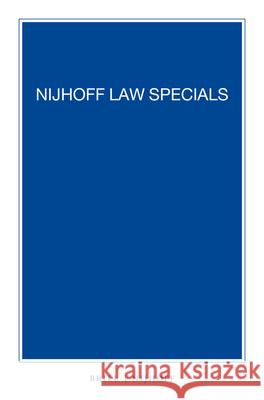The United Nations: Past, Present and Future » książka
The United Nations: Past, Present and Future
ISBN-13: 9789041103376 / Angielski / Miękka / 1996 / 200 str.
The United Nations is no more than a very modest element in the whole complex body of institutions which form the structure of international relations. It may thus appear surprising that this organization should have been, and can still be, the object of such enthusiasm and such hate - of such admiration and such derision - and that the most contradictory opinions should daily be expressed on what it does, on its operation and its effectiveness, and on the steps which should be taken for its reform. It is impossible to understand this paradoxical situation without analyzing the interrelationships between ideas about peace - which were false since the beginning of the League of Nations, the manner in which these ideas have come to be embodied in a structure which prevented the institution from becoming a useful instrument of negotiation, and the accelerating rate of political change in the world, all of which make some suggest that the UN is becoming more and more irrelevant. Today, the UN touches on everything, but does not in any way give a response to the dream of peace which it was supposed to realize. Through a thorough analysis of the role of the League of Nations and of the UN in the field of security, an evaluation of their rare successes and their numerous failures, and a complete review of the activities of the organisation in the economic and social fields, Maurice Bertrand shows that there is a need today for a radical reform of the whole complex of global organizations. This work is a translated and updated edition of L'ONU, published by Editions la Decouverte.











